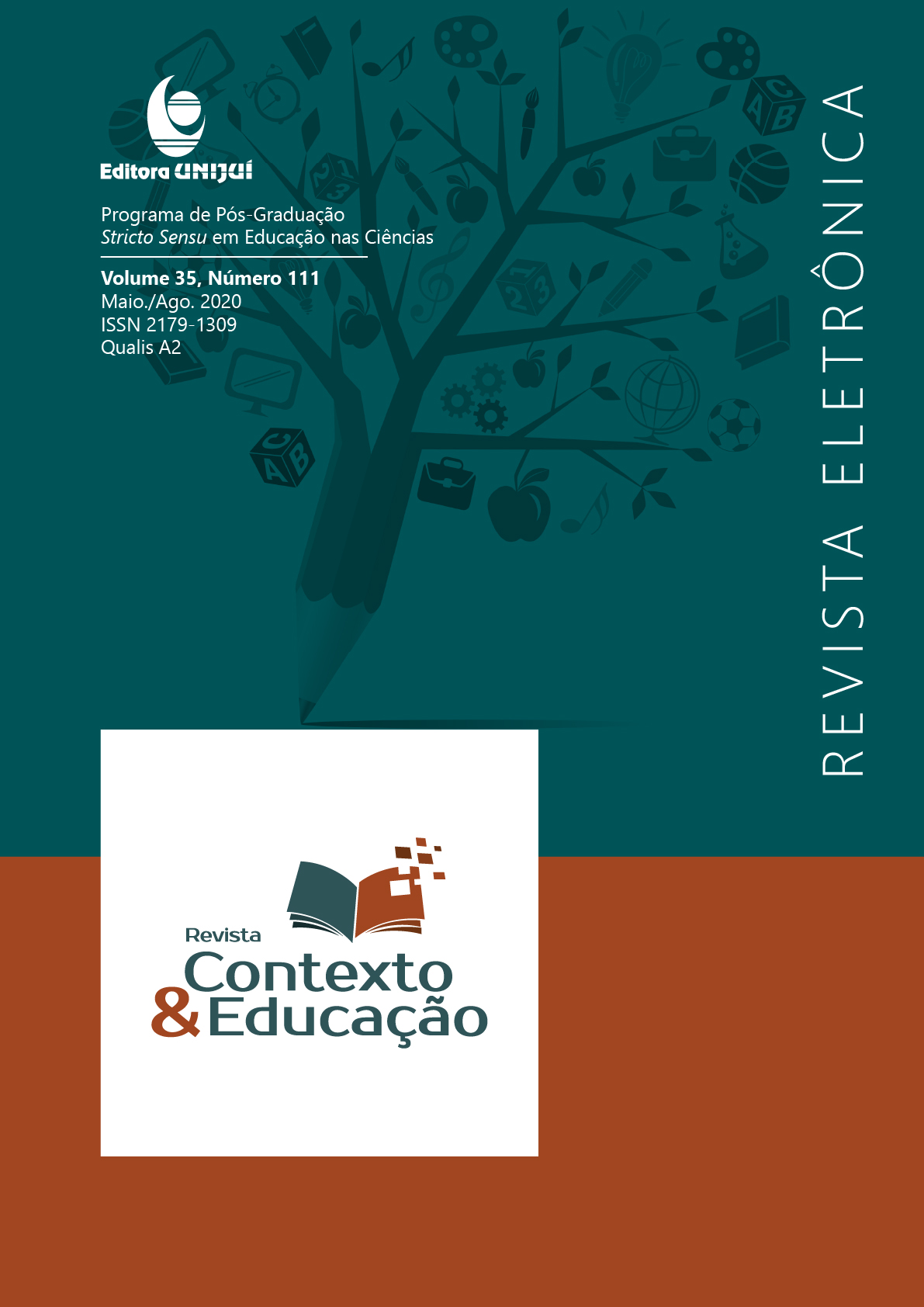ESTRATÉGIAS DE RESISTÊNCIA POSSIBILITANDO O DEBATE DE GÊNERO E SEXUALIDADE NA ESCOLA
DOI:
https://doi.org/10.21527/2179-1309.2020.111.46-63Palavras-chave:
Gênero. Sexualidade. Resistências. Escola.Resumo
Este artigo tem como objetivo analisar algumas estratégias de resistência produzidas em um projeto-experiência que visa à promoção das discussões de gênero e sexualidade no espaço escolar. O trabalho articula problematizações acerca dos mecanismos de poder e estratégias de resistência de professoras e de um professor que participaram de tal projeto. As perspectivas que organizaram as análises tomam como inspiração os estudos foucaultianos, de gênero e sexualidade. Os dados da pesquisa foram produzidos a partir de entrevistas e de grupo de discussão. Nas análises, foi possível perceber estratégias promovidas pelas/pelo professoras/professor, como: trabalhar com a temática, utilizando termos ou assuntos de “maior aceitação” pela sociedade; incorporar a temática aos conteúdos das disciplinas; manter um diálogo com as famílias e comunidade sobre o desenvolvimento do projeto; lutar pela inclusão da temática nos documentos que fornecem diretrizes educacionais, entre outras estratégias de resistências, buscando manter a problematização e as discussões referentes às temáticas de gênero e sexualidade em suas salas de aula. Por fim, para possibilitar um espaço escolar menos discriminatório e sexista, é fundamental que existam propostas que promovam resistências e que possibilitem a problematização e o debate das questões de gênero e sexualidade na escola.
Downloads
Publicado
Como Citar
Edição
Seção
Licença
Ao publicar na Revista Contexto & Educação, os autores concordam com os seguintes termos:
Os trabalhos seguem a licença Creative Commons Atribuição 4.0 Internacional (CC BY 4.0), que permite:
Compartilhar — copiar e redistribuir o material em qualquer meio ou formato;
Adaptar — remixar, transformar e criar a partir do material para qualquer fim, inclusive comercial.
Essas permissões são irrevogáveis, desde que respeitados os seguintes termos:
Atribuição — os autores devem ser devidamente creditados, com link para a licença e indicação de eventuais alterações realizadas.
Sem restrições adicionais — não podem ser aplicadas condições legais ou tecnológicas que restrinjam o uso permitido pela licença.
Avisos:
A licença não se aplica a elementos em domínio público ou cobertos por exceções legais.
A licença não garante todos os direitos necessários para usos específicos (ex.: direitos de imagem, privacidade ou morais).
A revista não se responsabiliza pelas opiniões expressas nos artigos, que são de exclusiva responsabilidade dos autores. O Editor, com o apoio do Comitê Editorial, reserva-se o direito de sugerir ou solicitar modificações quando necessário.
Somente serão aceitos artigos científicos originais, com resultados de pesquisas de interesse que não tenham sido publicados nem submetidos simultaneamente a outro periódico com o mesmo objetivo.
A menção a marcas comerciais ou produtos específicos destina-se apenas à identificação, sem qualquer vínculo promocional por parte dos autores ou da revista.
Contrato de Licença (para artigos publicados a partir de outubro/2025): Os autores mantém os direitos autorais sobre seu artigo, e concedem a Revista Contexto & Educação o direito de primeira publicação.


